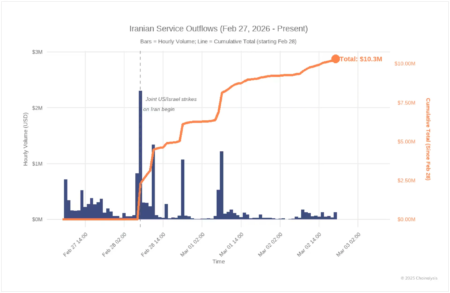Canary Capital’s S-1 Filing: The First Spot CRO ETF in the U.S.
Canary Capital recently made headlines by filing an S-1 registration statement with the Securities and Exchange Commission (SEC) to launch what could be the first spot CRO exchange-traded fund (ETF) in the United States. This proposed fund aims to provide direct exposure to the price of CRO, the native cryptocurrency of the Cronos blockchain, which is closely associated with the Crypto.com ecosystem. The launch is particularly noteworthy as it includes a staking component, allowing investors to earn potential yields alongside traditional price exposure.
The Role of Crypto.com as Custodian
According to the S-1 filing, Crypto.com is set to serve as the custodian and liquidity provider for the proposed CRO ETF. This arrangement is crucial for ensuring that the fund operates efficiently and transparently. By leveraging Crypto.com’s extensive infrastructure, investors can gain easier access to the cryptocurrency markets through an established financial product. Eric Anziani, President and COO of Crypto.com, emphasized the significance of ETFs in enhancing investor participation in crypto markets while integrating traditional financial capabilities—an essential step for widening the investor base in the U.S.
Staking for Yield Generation
One of the defining features of the proposed fund is its intention to stake a portion of its assets through multiple staking providers. This strategy has the potential to generate additional yield for investors, providing them with more than just capital appreciation from CRO price movements. The fund plans to process share creations and redemptions in cash rather than in-kind, similar to existing spot Bitcoin and Ethereum ETFs in the U.S. However, it leaves the door open for in-kind redemptions in the future, should regulatory approvals allow for such measures.
The Cronos Blockchain and Its Applications
The Cronos blockchain represents a significant innovation in the crypto space, being an Ethereum Virtual Machine (EVM)-compatible platform that is developed by Crypto.com for decentralized finance (DeFi), non-fungible tokens (NFTs), and web3 applications. Building on the Cosmos SDK, Cronos enables low-cost transactions and cross-chain interoperability, with CRO serving multiple functions such as transaction fees, governance, and staking. This diverse utility makes CRO a compelling asset for inclusion in an ETF, aligning with investor interest in multifaceted cryptocurrency initiatives.
A New Wave of Crypto ETFs
Canary Capital’s filing comes amidst a surge of interest in crypto ETFs, having submitted various applications in recent weeks for funds linked to other cryptocurrencies like Pengu, Sui, Hedera, and Litecoin. Furthermore, the company has also proposed a spot Tron ETF featuring a staking element. This uptick follows a binding agreement last month between Trump Media, Crypto.com, and Yorkville America Digital to launch a series of ETFs focused on various digital assets and securities with a "Made in America" mission. Such developments point to a rapidly evolving crypto asset landscape, with a potential for greater mainstream adoption.
Regulatory Clarity on Staking Activities
Interestingly, Canary Capital’s filing coincides with a significant announcement from the SEC’s Division of Corporation Finance, clarifying that staking activities on proof-of-stake networks do not constitute securities transactions. This clarification is a positive sign for the crypto industry, suggesting that participants engaged in protocol staking activities are exempt from registration requirements under the Securities Act. Commissioner Hester Peirce labeled the statement a much-needed clarity for stakers and ‘staking-as-a-service’ providers, reinforcing the notion that providing security does not equate to being a security.
In conclusion, Canary Capital’s attempt to launch the first spot CRO ETF in the U.S. marks a notable milestone in the cryptocurrency landscape, embodying the growing convergence of traditional finance and digital assets. As various asset management firms, including Bitwise, Grayscale, and Franklin Templeton, seek SEC approval for their own spot crypto ETFs, the momentum builds for broader engagement in the crypto ecosystem. With favorable regulatory attitudes highlighting the potential for staking, the future of crypto investments looks more promising than ever.
















